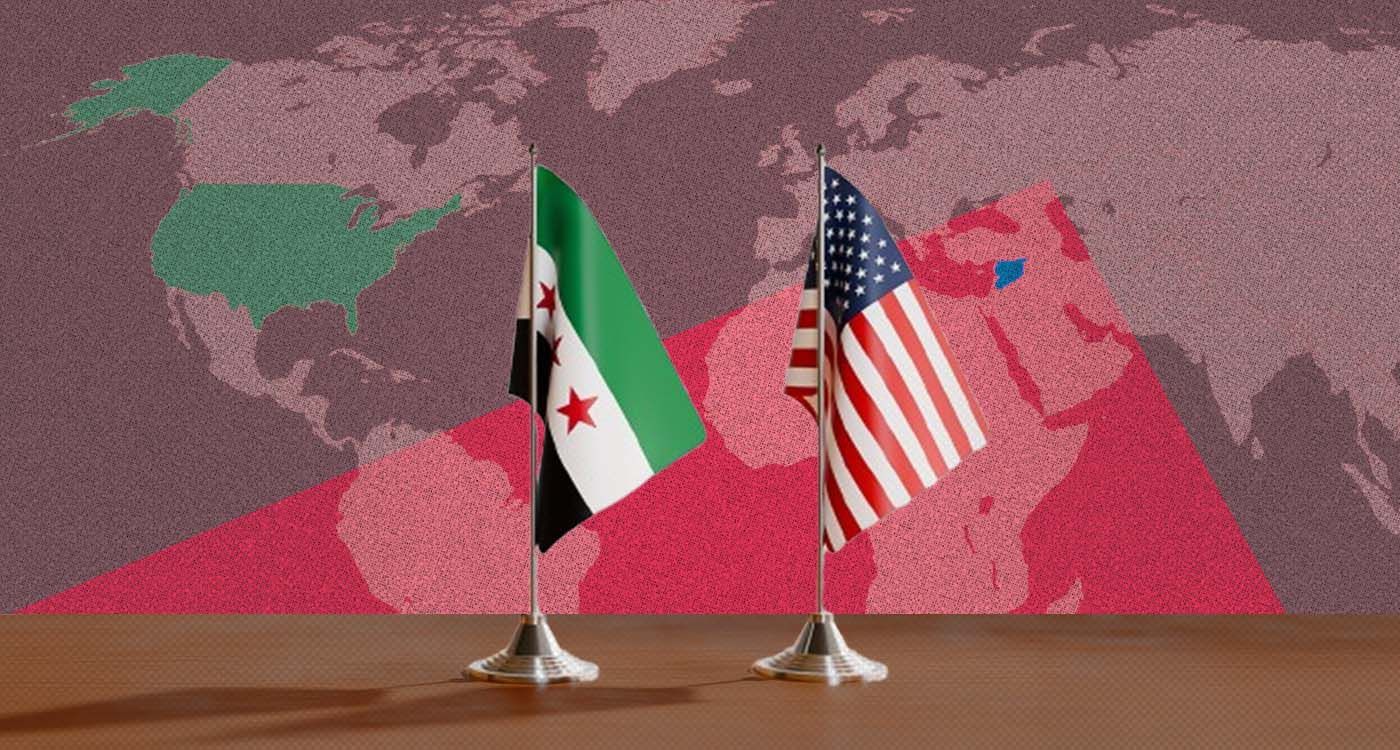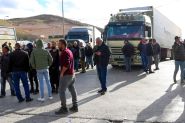- Home
- Middle East
- What Should America Do About Syria?

©This is Beirut
While Lebanese are focused intently on developments in Syria, the topic is absent in Washington. Yet what is happening there is one of the landmark geo-strategic developments of the Middle East of our times, the demise of a long-standing problematic regime for America and its friends and part and parcel of the reversal of fortunes of a major rival, Iran. The outcome could help or stymie anything else we try to do in Gaza or Lebanon.
The good news is that the Assad family is gone, for good. The bad news is that it has been replaced by a Salafi jihadist who spent much of his career orchestrating suicide bombings and whose governance record in Idlib is not exactly a model of Jeffersonian democracy.
The remarkable success of Mohamed Jolani/Ahmad al-Sharaa and the HST militia will be dissected by historians. The simple version is that he and his band of warriors confronted the hollowed-out Assad regime just when its foreign saviors -- Iran and Hezbollah -- were themselves suffering dramatic reverses and unavailable to take 911 calls. Assad's troops -- who like all soldiers were alert to the realities of survival -- sensibly crumbled.
But what do we have now? In Jolani we have a shape-shifter par excellence. He seeks to be all things to all people: a militia leader in cammies with his fighters in the morning, a statesman in his tailored blue suit receiving visiting VIPs from Europe and the Arab world in the afternoon.
Jolani's condition is a difficult one. Now that he has seized capital, he has to make the remnants of a failed state work and consolidate central authority. There is a degree of uneasy goodwill internationally and in his country hoping he will get it right, but skepticism about his background. Moreover, there is doubt whether anyone could manage to overcome the challenges he faces. There are at least five major militias and four foreign militaries operating in his country, which is economically decimated and devoid of basic services. In his "all things to all people" mode, he talks of broader political participation, elections, a Constitution, and political parties, while being cagey about his views of sharia law. He knows Syria is fragmented and historically hard to govern -- just look at the history of its politics since independence.
Yet, while he has many constituencies, he has only one base: The fellow Salafi jihadists who brought him to power. He seems to be an intelligent and even charismatic leader, but even if he genuinely wants to move toward a moderate center, why would his base go along with him? What can induce a confederation of loosely allied, armed men, ideologically motivated to hate deviation, to choose to deviate? And if not, how can he survive?
Which produces a conundrum for America and its Arab and European partners. They no doubt have an interest in seeking restored stability in Syria. They have no alternative vehicle for governance there. They are confronted with the reality that Turkey, with its interests and agenda, will exercise outsized influence. And they are wedded to a failed, doctrinaire, liberal-order solution. American policy -- to the extent Washington has one -- clings to UN-speak, favoring an "inclusive, non-sectarian democratic government, adhering to principles of transparency and accountability" consistent with a UN Security Council resolution adopted ten years ago and ignored by everyone. This nirvana is meant to emerge by consensus from a Syrian political dialogue chaired by an admirable Norwegian diplomat. Shouldn't we lower our sights to the simpler, short-term goal of a regime that stops projecting violence to its neighbors, slaughtering its people, and compelling them to flee?
In Washington, any new administration faces myriad tasks and seeks to take them all on with a coherent strategy and adroit tactics. While the fragile situations in Gaza and southern Lebanon naturally seize the headlines, everything Washington does in the Middle East today -- whether American officials understand it or not -- becomes part of the bigger geo-strategic contest between Iran and its proxies and America and its allies. However, urgent humanitarian relief and stopping violence may be, how it is done will influence that larger contest, for better or worse. So, too, will the direction of Syria. Where Washington stands is not yet clear. There are plenty of hardliners in Iran in the new administration. How they weave all these issues together -- side-by-side with our regional partners -- into a coherent, persistent strategy to make permanent Iran's current reversal of fortunes is unclear. Passive indifference to the extraordinary opportunity presented in Syria would be a colossal blunder, as there is no surer path to a restoration of Iranian and Hezbollah influence in the Levant than to enable a vacuum in Syria and rampant Salafi mayhem there. And those risks are very real.
It is time for America to look beyond its anti-ISIS campaign in the far northeast. America should be using a range of carrots and sticks -- lifting or maintaining sanctions, enabling humanitarian relief while conditioning reconstruction, withholding or granting full recognition. Those tools, with adroit diplomatic engagement, can test whether or not Jolani will abandon his base, move toward the center, and gain international recognition. It should be left to him to prove through deeds that he has changed, but it will be up to us to signal the rewards if he does so, and the costs if he does not. Separate strategies to tackle the problems in Gaza and Lebanon are needed, but history proves that an unstable Syria will once again become a regional base for forces that will seek to thwart whatever is done by those who seek peace and stability in this troubled part of the world.
Read more




Comments